| |

|
DeLoG NEWSLETTER
No. 47 – 01/2020
|
|

|
| |
|
|
| |
Dear Reader,
Welcome to issue No. 47 of the DeLoG Newsletter. As usual this edition will showcase the Network’s most recent activities and provide news on upcoming events, courses and publications concerning
(1) local governance and decentralisation,
(2) fragility, post-conflict settings and migration,
(3) fiscal decentralisation and local finance,
(4) the 2030 Agenda and localising the SDGs as well as
(5) urban and territorial governance.
Our ‘In-Profile Section’ introduces you to one of our Network’s members or partners. This issue features the Cities Alliance presented by Dr. Rene Peter Hohmann. Read his interview to learn all about the work of the Cities Alliance, their goals for 2020 and their cooperation with the DeLoG Network.
Can’t get enough? Then feel invited to visit our DeLoG Website. Our 'Knowledge' and 'Event' sections provide you with access to even more new publications as well as current courses offered by our members and partners.
We hope you will enjoy this month’s issue and encourage you to forward the DeLoG Newsletter to other interested parties.
All the Best,
Your DeLoG Team
Contact: info@delog.org |
|
|
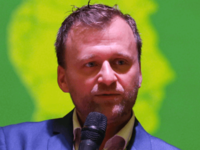
© Dr. Rene Peter Hohmann 2019
|
|
In Profile – Dr. Rene Peter Hohmann, Cities Alliance
Dr. Rene Peter Hohmann is the Head of Global Programmes at the Cities Alliance (CA) Secretariat, hosted by the United Nations Office for Project Services (UNOPS). In this 'In Profile' edition, Dr. Rene Peter Hohmann shares his insights concerning the progress of SDG implementation. He provides details on Cities Alliance approach to overcome structural challenges to the realisation of the 2030 Agenda. In his view, 'the fact that DeLoG and Cities Alliance are joining up, is a fantastic asset to build upon.'
|
| |
|
|
| |
|
|
|
|
|
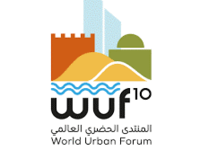
© UN-Habitat 2019
|
|
DeLoG Participation at the 10th World Urban Forum with Own Networking Event: 'If You Want to Go Far, Go with Many - Strengthening the Local Voice at the International Level'
Organised and convened by UN-Habitat, the World Urban Forum has become the foremost international gathering for exchanging views and experiences on sustainable urbanisation. The theme of the 10th session will be 'Cities of Opportunities: Connecting Culture and Innovation'. This year, DeLoG will participate by hosting a panel discussion with representatives from associations of local authorities and bilateral and multilateral development partners from the DeLoG Network. The participants will be encouraged to discuss the role of networks for the future of cities and other local authorities and to compare their approaches and reflect on current and future challenges faced by their networks. The event will conclude by bringing all key findings together and aims to inspire participants to widen and deepen their cooperation.
The session will take place on Sunday, 9th February 2020, from 03:30 pm to 04:30 pm.
|
| |
|
|
| |
|
|
|
|
|
News from Members and Partners
|
|
|
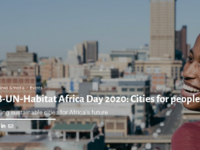
© EIB 2019
|
|
EIB-UN-Habitat Africa Day 2020: Cities for People - Building Sustainable Cities for Africa’s Future
Two thirds of the urban space needed in Africa by 2050 does not yet exist. Sustainable urbanisation is therefore indispensable. At Africa Day in Dakar on 27th February 2020 the European Investment Bank (EIB) and UN-Habitat will host an agenda-setting event and networking platform for African and European representatives from a wide range of organisations to address rapid urban growth in Africa and foster transnational and local cooperation concerning the successful implementation of the SDGs in terms of sustainable urbanisation. Registration is now open.
|
| |
|
|
| |
|
|
|
|
|

© Richard Attias & Associates 2019
|
|
The 2020 Africa-France Summit for Sustainable Cities and Regions
From 4th to 6th of June 2020 Bordeaux will host the 28th Africa France-Summit, co-organised by the French Ministry of Europe and Foreign Affairs. Its focus will be on sustainable cities and regions. Next to the French President, all 54 African Heads of State will be in attendance. The Summit provides an excellent opportunity for stakeholders from French and African state institutions, the public sector, financial institutions, private companies and civil society to discuss innovative projects and solutions for the sustainable cities of the future. Besides these topics, the subjects of transport infrastructure, waste processing, environmentally friendly agriculture and access to healthcare, education, culture and sport will be addressed.
|
| |
|
|
| |
|
|
|
|
|

© ICLEI 2019
|
|
After COP25, Frustration Over Decisions but Even More Hope on Local Climate Action
The longest-ever climate conference, COP25, was held in Madrid from 2nd to 13th December 2019. Following its conclusion, many participants voiced their disappointment in the lack of progress. In CityTalk Yunus Arikan, the ICLEI’s Director of Global Advocacy, outlines four main reasons why to remain hopeful after COP25 nevertheless: (1) Ambition found a way onto the agenda beyond the negotiations; (2) Local and regional governments are not waiting for their national governments for climate ambition; (3) The climate agenda is expanding, and that is good for everyone; (4) We know for sure that some enhanced NDCs will include local governments.
|
| |
|
|
| |
|
|
|
|
|
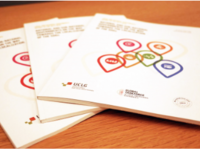
© UCLG CIB Working Group 2020
|
|
UCLG’s Support for Local Governments Associations to Report on the Localisation of the SDGs in Five Different Countries in 2020
UCLG’s yearly report 'Towards the Localization of the SDGs' summarises the efforts of local and regional governments to implement the global agendas and serves as a counterpart to the Voluntary National Reviews (VNR) by national governments. For its 2020 edition UCLG will complement its previous methodology – surveys, direct consultation with its members and collaborative research – with pilot reporting initiatives form Costa Rica, Nepal, Kenya, Mozambique and Ecuador. By supporting these pilot initiatives UCLG aims to strengthen the capacities of national local government associations involved in the preparation of their countries’ VNRs as well as encourage them to develop their own local reporting processes. The report will be presented during the UN’s High Level Political Forum (HLPF) 2020.
|
| |
|
|
| |
|
|
|
|
|
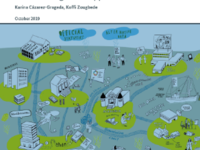
© GIZ 2019
|
|
National SDG Review: Data Challenges and Opportunities
GIZ (2019)
During the 7th Partners for Review network meeting in Hanoi, Vietnam, the Partnership in Statistics for Development in the 21st Century (PARiS21) and Partners for Review launched their new landmark paper on data challenges and opportunities in the context of national SDG reviews. Aimed at national statistics offices, development professionals and others involved in the national data ecosystem, the report identifies factors inhibiting countries from fully taking advantage of these data systems and identifies approaches to enhance statistical capacities to realise the 2030 Agenda.
|
| |
|
|
| |
|
|
|
|
|
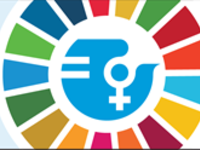
© UN Women 2019
|
|
64th Session of the Commission on the Status of Women to be Held in March
In 1995, at the Fourth World Conference on Women the global community agreed that advancing women’s rights is of utmost importance. Subsequently, they adopted the Beijing Declaration and Platform for Action. 25 years later working towards gender equality and female empowerment remain just as crucial. SDG 5 of the Agenda 2030 on Gender Equality is a testament to this commitment.
The 64th session of the Commission on the Status of Women will be held in New York at the United Nations Headquarters from the 9th to 20th March 2020. During the session representatives of Member States, UN entities, and ECOSOC-accredited non-governmental organisations from all over the world will evaluate to what extent the Beijing Declaration and Platform for Action as well as the outcomes of the 23rd special session of the General Assembly have been implemented. In addition, current challenges inhibiting the realisation of the Platform for Action as well as gender equality and female empowerment will be considered and discussed.
|
| |
|
|
| |
|
|
|
|
|
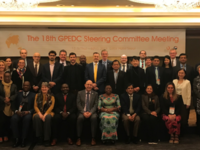
© UNDP 2019
|
|
Seoul Hosts the Busan Global Partnership Forum, 18th Steering Committee Meeting’s Deliberations on the Next Work Programme
The Republic of Korea hosted the 5th edition of the Busan Global Partnership Forum and the 18th Meeting of the Steering Committee from 4th to 6th December 2019. Nearly 200 participants from national governments, academia, civil society and other stakeholders attended the Forum in order to review key trends in development cooperation and development effectiveness. The sessions were guided by the 2030 Agenda, the Financing for Development Process and the SDGs.
The 18th Steering Committee Meeting was used to discuss the Co-Chairs’ proposal for the new work programme of the Global Partnership for Effective Development Cooperation which sets out advancing development effectiveness efforts for the 2030 Agenda, building better partnerships, and leveraging monitoring for action as strategic priorities.
|
| |
|
|
| |
|
|
|
|
|
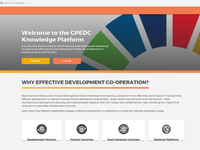
© UNDP 2020
|
|
The GPEDC Knowledge Platform Is Now Live
The Global Partnership for Effective Development Cooperation (GPEDC) functions as a multi-stakeholder platform that supports development actors in advancing the effectiveness of their development efforts. In this context GPEDC makes use of a variety of tools such as its Monitoring Dashboard or since December 2019 its Knowledge Platform:
GPEDC’s Monitoring Dashboard incorporates the data from GPEDC’s biennial monitoring rounds as well as data gathered form the Paris Aid Effectiveness process to track advances concerning the implementation of effective development cooperation commitments at the country, regional and global level. Moreover, it allows users to generate interactive displays of monitoring results to contrast these results.
GPEDC’s Knowledge Platform in turn acts as an interactive digital space where development cooperation practitioners can create profiles, groups and discussion forums, and share knowledge and ideas on enhancing effective development cooperation.
|
| |
|
|
| |
|
|
|
|
|
Studies and Publications
|
|
|
Local Governance and Decentralisation
|
|
|
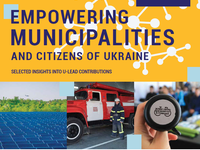
© U-Lead with Europe 2019
|
|
Empowering Municipalities and Citizens of Ukraine: Selected Insights into U-Lead Contributions
U-LEAD (2019)
Ukraine’s decentralisation reform in 2014 has had a great impact on the country’s villages, settlements and towns. Local self-government bodies known as amalgamated hromadas have been provided with new functions and responsibilities to better address their citizen’s need, thus strengthening the role of municipalities and cities. This publication provides illustrative information concerning this new approach to local self-governance and demonstrates that Ukraine’s decentralisation reform touches upon all aspects of everyday life, from sustainable mobility, local business development, recycling, energy efficiency to sustainable energy.
|
| |
|
|
| |
|
|
|
|
|
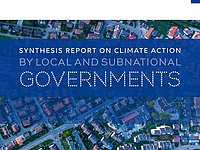
© Max Bottinger on Unsplash
|
|
Synthesis Report on Climate Action by Local and Subnational Governments
Climate Change Association (2019)
Issued by the Climate Change Association in November 2019, this report provides a detailed description of advances made in climate policy up-to-date. Divided into three sections, it assesses which local and subnational government approaches have had an impact on the climate change goals.
Each section of the report outlines a different aspect of the implementation process. Section One focusses on the implementation progress of local governments concerning climate policy, Section Two compares the advances made in different territories, while Section Three highlights achievements from 80 different initiatives around the world. Moreover, the report sheds light on decentralised cooperation approaches.
|
| |
|
|
| |
|
|
|
|
|
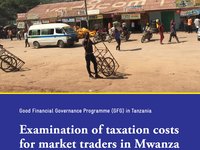
© GIZ 2019
|
|
Good Financial Governance Programme (GFG) in Tanzania: Examination of Taxation Costs for Market Traders in Mwanza
GIZ (2019)
Commissioned by GIZ and Ambero the study ‘Examination of taxation costs for market traders in Mwanza’ examines discrimination and bias in market taxation in Mwanza City, Tanzania, concerning a number of demographic factors such as gender, age or education. The study demonstrates that female traders face higher fiscal burdens concerning access to public goods and services, especially the use of toilets. Based on these findings the study gives recommendations on how to adapt the market taxation system in order to better account for the identified biases.
The objective of the study is to follow up on previous findings of gender-based discrimination in market taxation in Tanzania and to initiate a gender-sensitive revenue incidence dialogue to discuss the results of the study and their implications for key stakeholders.
|
| |
|
|
| |
|
|
|
|
|
Fragility ● Post-conflict settings ● Migration
|
|
|
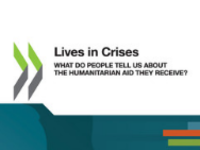
© Freepik
|
|
Lives in Crises: What Do People Tell Us About the Humanitarian Aid They Receive?
OECD (2019)
Following the World Humanitarian Summit in May 2016, the OECD began to question the quality and effectiveness of its development approaches in crisis settings. In order to improve their methods, they partnered with the organisation Ground Truth Solutions to determine aid recipient’s perception of humanitarian aid. The survey was conducted with interviewees from six different countries (Iraq, Somalia, Uganda, Afghanistan, Lebanon and Haiti) who had experienced different types of crises and tailored aid responses. The results of the survey are summarised in 'Lives in Crises: What Do People Tell Us About the Humanitarian Aid They Receive?'.
|
| |
|
|
| |
|
|
|
|
|

© Jehad Mohammed
|
|
'The Situation Needs Us to Be Active': Youth Contributions to Peacebuilding in Yemen
Saferworld (2019)
Published in December 2019, this report contains interviews and insights gained by Saferworld from their work with youth activists in Yemen. Since 2015 the country has been affected by civil war. The conflict has had devastating consequences for the Yemeni people. The report illustrates how youth organisations have contributed to peacebuilding efforts, social cohesion and the reduction of violence and makes concrete suggestions on how these efforts can be supported by international NGOs, UN agencies, donors and diplomats.
|
| |
|
|
| |
|
|
|
|
|
Fiscal Decentralisation ● Local Finance
|
|
|
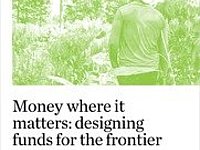
© Publications library (1998-2020)
|
|
Money Where it Matters: Designing Funds for the Frontier
IIED (2019)
Published by IIED in 2019, this paper assesses the flow of climate finance from primary donor to local actor and introduces a new framework to improve the financial support of local institutions that address drivers of poverty, resource degradation and climate change. In addition, it provides information on how primary donors, global funds and financial intermediaries contribute to this new climate finance system.
|
| |
|
|
| |
|
|
|
|
|
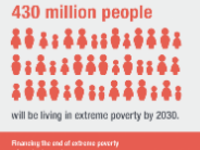
© ODI 2019
|
|
Financing the End of Extreme Poverty: An Update
ODI (2019)
‘No Extreme Poverty by 2030’ constitutes the first Sustainable Development Goal of the 2030 Agenda. In its report ‘Financing the End of Extreme Poverty: An Update’ ODI examines to what extent this goal has been achieved. As in their first report from 2018 (refer to DeLoG Newsletter No. 41), the authors maintain that taxation schemes and public spending approaches in low- and middle-income-countries need to be adapted. Additionally, they encourage donor countries to follow the UN recommendations regarding donor spending. The publication pays special attention to the rising number of people threatened by extreme poverty and the relation between aid flows and taxation. Based on the data feasible recommendations for receiving and donor countries are given.
|
| |
|
|
| |
|
|
|
|
|
2030 Agenda ● Localising the SDGs
|
|
|
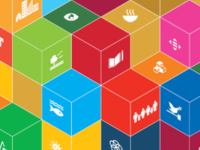
© UN SDG 2019
|
|
Foundational Primer on the 2030 Agenda for Sustainable Development
UN SDG (2019)
Turning the SDGs into a reality by 2030 requires the active involvement and collaboration of all stakeholders. Therefore, this SDG Primer attempts to establish a common base of understanding to support SDG implementation approaches. It outlines the meaning and narrative of sustainable development and explores the interrelation of the SDGs across various sectors. In this context it touches upon five main topics, namely Sustainable Development and the SDGs in general, SDG integration, tools to support progress of national governments, possible financing strategies as well as options for collaboration between sectors.
|
| |
|
|
| |
|
|
|
|
|
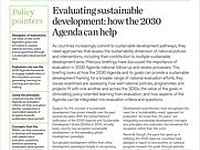
© IIED 2019
|
|
Evaluating Sustainable Development: How the 2030 Agenda Can Help
IIED (2019)
Issued in July 2019 by the International Institute of Environment and Development, this briefing highlights interesting aspects concerning the underlying principles of the 2030 Agenda and makes suggestions on how these principles can be used to develop a new framework for a more effective evaluation of Sustainable Development projects. Special attention is paid to how well national policies, programmes and projects complement each other; the value of the goals in stimulating policy-oriented learning from evaluation; and how aspects of the 2030 Agenda can be integrated into evaluation criteria and questions.
|
| |
|
|
| |
|
|
|
|
|
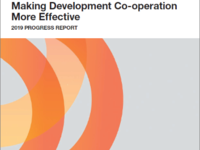
© OECD, UNDP 2019
|
|
The 2019 Global Progress Report
OECD, UNDP (2019)
The Global Partnership concluded its third monitoring round in 2019. Evidence on advances made in implementing effective development cooperation commitments at the country, regional and global level was provided by 86 partner countries and territories, in collaboration with more than 100 development partners. The results are summarised in the 2019 Global Progress Report. The report is organised in three parts: Parts I and II - released in advance of the Senior-Level Meeting of the Global Partnership - consider how partner countries are putting in place the building blocks for an effective, whole-of-society development effort and how such country-led efforts are supported by development partners. Informed by the discussions at the Senior-Level Meeting, Part III reflects views of Global Partnership stakeholders on the evidence presented in Parts I and II as well as key messages to further shape the future of the monitoring exercise and effectiveness efforts.
|
| |
|
|
| |
|
|
|
|
|
Urban and Territorial Governance
|
|
|
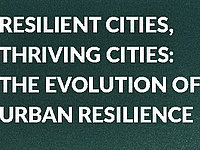
© ICLEI 2019
|
|
Resilient Cities, Thriving Cities: The Evolution of Urban Resilience
ICLEI (2019)
ICLEI’s report on ‘Resilient Cities, Thriving Cities: The Evolution of Urban Resilience’ draws on data collected by the Resilient Cities Congress series over the last ten years in order to track the evolution of the global resilience debate. It assesses a variety of resilience approaches implemented by cities and other main players in the field of urban resilience and appraises the current state of resilient cities. The report addresses political leaders, practitioners, funders and representatives of the international community and civil society to provide guidance on urban resilience.
|
| |
|
|
| |
|
|
|
|
|

© Cities Alliance 2019
|
|
Managing Ecosystems Goods to Foster Equitable Economic Growth in Cities
Cities Alliance (2019)
Developed in cooperation with Vivid Economics, CA’s brochure on ‘Managing Ecosystems Goods to Foster Equitable Economic Growth in Cities’ identifies best practice approaches and tools for local and governmental policy makers concerning the management of ecosystem services and goods. The brochure highlights how local authorities in cities can effectively manage ecosystem services to foster equitable economic growth. The suggested tools and approaches identified provide a conceptual link between local government action, ecosystem service management and economic outcomes.
|
| |
|
|
| |
|
|
|
|
|
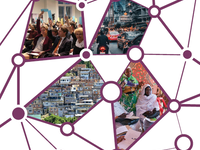
© United Nations Human Settlements Programme 2019
|
|
How to Formulate a National Urban Policy: A PRACTICAL GUIDE
UN-Habitat (2019)
Developed by UN-Habitat this practical guide recognises cities as important centres of democracy, innovation and economic development. Moreover, it underscores cities crucial role for realising the global agendas such as the Agenda 2030 or the New Urban Agenda. To ensure effective implementation national and sub-national urban policies focussed on sustainable urbanisation need to be developed. To aid this process the publication identifies key issues and provides recommendation for the development of urban policies in line with the international development framework. The guide represents a valuable resource for countries that are in the earlier stages of developing national urban policies.
|
| |
|
|
| |
|
|
|
|
| |

|
|
|
| |
|
|
| |
For access to even more inspiring publications on local governance and
decentralisation, fragility, post-conflict settings and migration, fiscal
decentralisation and local finance, the 2030 Agenda and localising
the SDGs or urban and territorial governance make sure to visit the
'Knowledge Section' of our DeLoG Website - Updates occur regulary!
|
|
|























